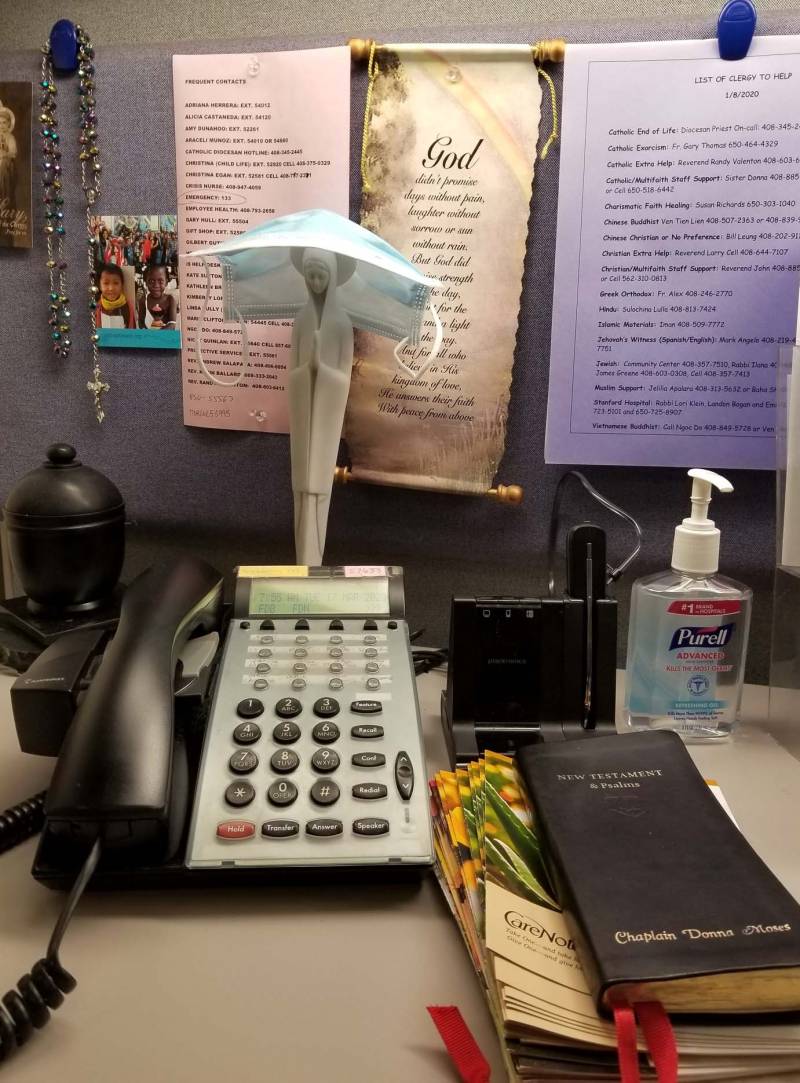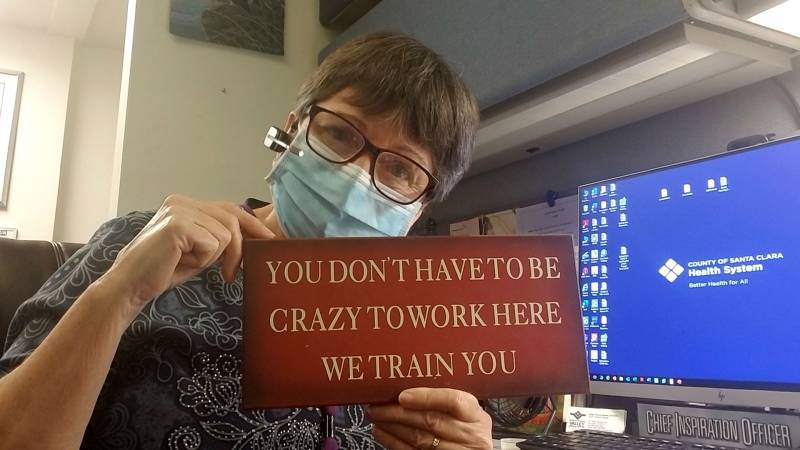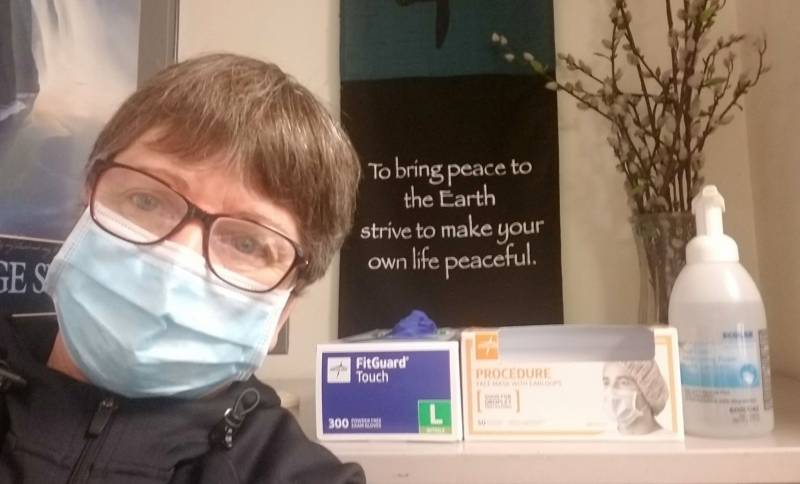Sister Donna Maria Moses, a Catholic nun and hospital chaplain who has seen the coronavirus pandemic firsthand, has adapted her ministry to provide solace to the dying over the phone, instead of the usual in-person visits.
She manages three staff chaplains and dozens of volunteers from many faiths at Santa Clara Valley Medical Center, one of the first hospitals to treat coronavirus patients returning from China and ill-fated cruise trips.
The chaplains can’t visit patients, or even the units where COVID-19 patients are being treated. Moses is no longer able to hug or hold hands with someone who’s sick or with grieving family members, but she’s determined to provide other kinds of spiritual and emotional comfort.
“Most of our work is listening,” she said. “Asking an open-ended question and continuing to ask questions until we have a sense of what their real prayer is. Are they afraid? Are they grief stricken? Are they angry? Are they in despair? So we can offer the appropriate kind of prayer for them,” Moses added.
Adapting Hospital Ministry to Coronavirus Conditions
At first, she and her colleagues didn’t realize how contagious and dangerous it was to visit COVID-19 patients in their rooms, or how challenging it would be to establish an emotional connection with patients in distress when chaplains must hide behind protective masks, gowns and shields.

“We don’t have to touch. Sometimes eye contact is enough," Moses said. "We use a vocal tone that conveys peace and acceptance and compassion." But with layers of protective gear, it hasn't felt the same for her or the people she strives to support.


